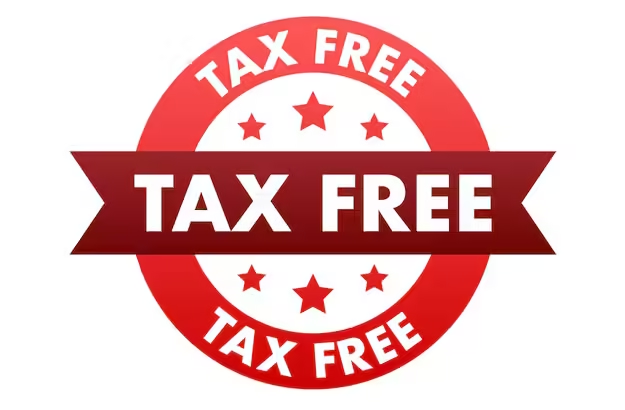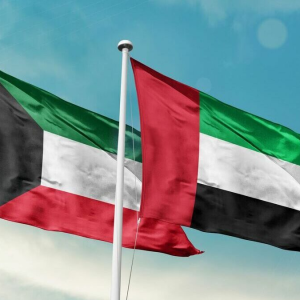Imagine living in a country where you don’t have to worry about paying income tax. It sounds like a dream, but for residents of the United Arab Emirates (UAE), it’s a reality. The UAE has established itself as a global tax haven, attracting millions of expatriates and businesses with its zero-income-tax policy. But what makes the UAE tax-free, and how does it benefit its economy and residents? In this article, we’ll dive into the reasons behind the UAE’s tax-free structure, its impact on the country, and how it’s helping residents enjoy a lifestyle free from the burden of personal taxes.
Why the UAE is Tax-Free: A Strategic Decision
The UAE’s decision to maintain a tax-free status is deeply rooted in its vision for economic growth and diversification. Here are some of the primary reasons why the country has chosen this approach:
1. Oil Revenue as a Backbone
Historically, the UAE’s economy has been heavily reliant on oil exports. The country’s substantial oil reserves provided enough revenue to fund public services and infrastructure development without the need for personal income tax. The wealth generated from oil has allowed the UAE to build world-class cities like Dubai and Abu Dhabi without taxing its residents directly.

2. Diversification Beyond Oil
In recent years, the UAE has focused on diversifying its economy to reduce dependency on oil. Sectors such as tourism, finance, real estate, and technology have seen massive growth. The government has encouraged foreign investment and international businesses by maintaining its tax-free policy, ensuring the UAE remains attractive to global talent and investors. This diversification strategy allows the country to continue funding its development without personal income taxes.
3. Attracting Foreign Investment and Skilled Workers
A tax-free environment has become one of the UAE’s most significant advantages in the global marketplace. The promise of no personal income tax attracts highly skilled professionals from all over the world. Additionally, the country’s favorable business conditions, including no corporate tax on many sectors, encourage foreign businesses to set up operations in the UAE.

Dubai, in particular, has become a magnet for international entrepreneurs and expats looking for a lifestyle that combines luxury, opportunity, and a low tax burden.
How the UAE Funds Public Services
Despite being tax-free, the UAE boasts world-class infrastructure, healthcare, and education systems. So, how does the government fund these services?
1. Value Added Tax (VAT)
While the UAE doesn’t impose income tax, it introduced a Value Added Tax (VAT) in 2018 at a rate of 5%. This tax is applied to goods and services and has become an essential source of revenue for the government. VAT helps fund public services without putting a financial burden on residents through direct taxes.
2. Corporate Fees and Levies
Certain sectors, such as banking and oil, are subject to corporate taxes. Additionally, companies operating in free zones are exempt from taxes, making the UAE attractive for business, but businesses operating outside these zones may be subject to other fees and levies that contribute to the government’s revenue streams.
3. Tourism Revenue
The UAE’s booming tourism industry plays a crucial role in funding public services. From luxury hotels to large-scale events such as the Expo 2020, tourism generates significant income for the government through hotel taxes, visa fees, and airport levies.
4. Real Estate and Property Taxes
While the UAE doesn’t have property taxes, there are certain fees associated with property transactions, including registration fees, which contribute to government revenues. The real estate sector has become a major source of income for the government, particularly in cities like Dubai.
The Benefits of Living in a Tax-Free Environment
Living in a tax-free country has clear financial benefits for residents. With no income tax, expatriates and citizens alike are able to keep 100% of their earnings. This allows them to enjoy a higher standard of living, invest in luxury goods, save more for the future, or start businesses. The UAE’s tax-free policy also makes it easier for entrepreneurs to set up and scale their ventures, further contributing to the country’s economic growth.
For businesses, operating in a tax-free environment lowers operational costs, allowing for higher profitability and reinvestment into their ventures. This has made the UAE a hub for multinational corporations and startups alike.
The Future of Taxes in the UAE
While the UAE remains one of the few tax-free havens, there have been discussions about potential changes in the future. For example, the introduction of VAT was seen as a first step toward broadening the tax base. Some experts suggest that as the country continues to grow and diversify its economy, there may be further developments in the tax structure.
However, for now, the UAE continues to maintain its reputation as a tax-free paradise, attracting residents and businesses from around the globe.
Conclusion
The UAE’s tax-free policy is a vital part of its strategy to attract talent, businesses, and investments, while its revenues from oil, VAT, and tourism help support its thriving economy. For residents, the tax-free lifestyle means more disposable income and a higher quality of life, making the UAE one of the most attractive places to live and work. Whether the tax-free status will change in the future remains uncertain, but for now, the UAE stands as a shining example of a thriving, tax-friendly economy.
Do follow UAE STORIES for more such content .













